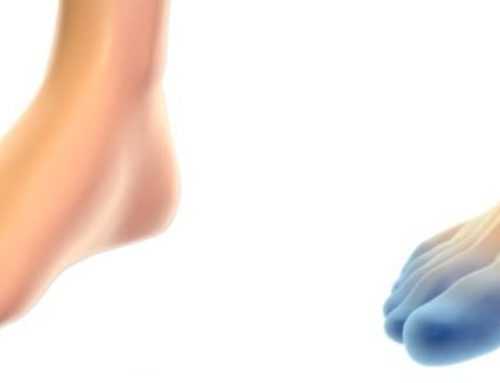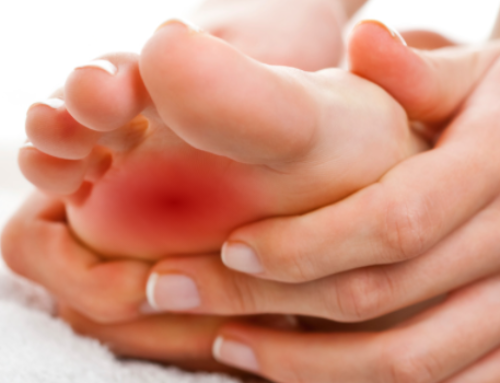
“Verruca plantaris” or plantar warts are caused by the human papillomavirus (HPV). The contagious virus will enter the body via small cuts or abrasions on your feet. Also, the HPV strain of virus that causes plantar warts can be caught by sharing a bath towel.
Warts, in general, are a viral infection of the skin that is common. The virus (HPV), that causes plantar warts, only infects the top (superficial) layer of the skin resulting in a thick, callus like growth that can be painful.
Although non-cancerous and not life threatening, professional treatment may be necessary to reduce symptoms, such as pain and to reduce the chances of spreading the virus further. Infection occurs in less than 10% of the entire United States population.
A person with a weak immune system is more susceptible to plantar warts, as the HPV thrives in moist, warm environments, such as pool decks in the summer time and communal shower rooms. The virus can live in this type of environment for months without a human host.
Plantar warts are not age discriminative, but they are more common in children between the ages of 12 and 16.
Plantar wars are unsightly lesions that appear on the soles of feet (and sometimes on toes). In the beginning, they resemble tiny puncture marks, and as they grow the color changes from black to brown, and they begin to look similar to a head of cauliflower.
Many people say that having plantar warts is like walking on a stone, and they are painful as they are pushed deeper into your skin by your weight.
Some people mistake plantar warts as being calluses, but the main difference is that calluses are smooth and clear in color, whereas plantar warts have a rough surface that is black or dark brown in color.
Signs and Symptoms of Plantar Warts include:
- Foot pain caused by a constant feel of a lump on the sole of your foot.
- Surfacing color may be brown or yellowish.
- Distinguishing black marks on the skin’s surface (referred to as “wart seeds”) are actually tiny blood vessels that have clotted.
- Usually found on the heel or the ball of your feet.
- Several warts may fuse together to form as “mosaic” wart.
- The skin will become thick where the wart is growing, just beneath the surface.
Call Doctor Lefkowitz at 215-230-9707, and make an appointment at his Doylestown office, if plantar warts multiply, have a negative impact on your daily activities, you have diabetes, neuropathy (nerve damage) or an immune deficiency disease, so he can monitor treatment and the healing process.
Some treatments may include Cryotherapy, Cantharidin, Immunotherapy, Imiguimod, Laser or minor surgery.
Whatever the best course of treatment that you and Doctor Lefkowitz decide, never make a poor decision to attempt to cut the wart off yourself, as you may cause unnecessary injury to yourself, and you will definitely cause the painful warts to spread.



